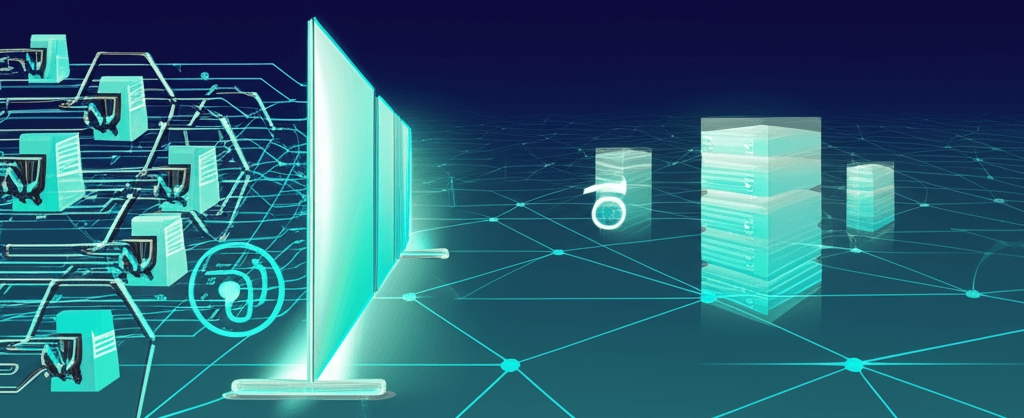Cloudflare Ends Free AI Data: New Default Blocks Web Scrapers, Demands Payment
Cloudflare's major policy shift forces AI to pay or get permission for content, reshaping the web's data economy.
July 1, 2025

In a move poised to reshape the digital landscape, internet infrastructure giant Cloudflare has announced it will now block artificial intelligence crawlers by default, shifting the power dynamic between content creators and the AI companies that rely on their data. This fundamental change requires AI developers to gain explicit consent from website owners before scraping their content for training large language models. The initiative aims to address the growing concern that AI firms are building lucrative technologies on the back of intellectual property without permission or compensation, a practice that many believe threatens the long-term viability of original content on the web. Representing a significant portion of the internet, with estimates suggesting it handles traffic for about 20% of all websites, Cloudflare's policy shift could have profound and immediate consequences for the AI industry, potentially starving models of the vast data troves they have freely consumed until now.
The core of Cloudflare's new strategy is a transition from an "opt-out" to an "opt-in" model for AI data scraping. Previously, website owners on Cloudflare's network had the option to block AI crawlers, a choice that over one million customers had already made since the feature was introduced in September 2024.[1][2] Now, this protective stance is the default setting for all new domains joining the service.[3][4] This means that AI companies will be automatically prevented from accessing content unless a website owner explicitly grants them permission.[3][1] To facilitate this new, permission-based ecosystem, Cloudflare is implementing a system where AI companies can identify the purpose of their crawlers—whether for training, search, or other functions—giving publishers more granular control over what kind of data access they are willing to allow.[5][3] This move is designed to restore a broken bargain; whereas search engines traditionally crawled the web to index content and drive traffic back to the original source, AI models often synthesize information and present it directly to users, cutting creators out of the loop and depriving them of revenue and engagement.[3][6]
A central component of this new framework is the "Pay Per Crawl" initiative, a system designed to create a direct economic relationship between content creators and AI developers.[5][1] This program, currently in a private beta phase, will allow publishers to set a price for access to their content, creating a new potential revenue stream.[5][7] AI companies can then choose to pay the requested fee to crawl the site or be denied access.[1][4] This marketplace for data aims to establish a fair value exchange for the original work that underpins many AI applications.[8] The system also allows for flexibility, enabling publishers to grant free access to specific crawlers, perhaps as part of separate licensing agreements, while charging others.[7] A host of major publishers have already endorsed this approach, including The Atlantic, BuzzFeed, Condé Nast, Gannett, and Time, signaling strong support from the media industry for a new model that respects intellectual property rights.[5][7]
The implications for the artificial intelligence industry are substantial and potentially disruptive. For years, the dominant model for training large language models has relied on the unfettered scraping of the public web, a practice that has faced increasing legal and ethical scrutiny.[2] With a significant portion of the internet now behind Cloudflare's default block, AI companies may face a sudden and severe data deficit, potentially hindering the development and refinement of future models.[5] Some experts have described the move as a potential "disaster" for the business models of many generative AI vendors, who may now face the tough choice of paying for data, finding alternative sources, or facing a degradation in the quality of their systems.[1] The policy effectively forces a reckoning, compelling AI firms to move from a paradigm of unrestricted data harvesting to one of negotiated access and fair compensation.[6][2] This shift could accelerate the trend of AI companies striking direct licensing deals with publishers, a practice already underway but likely to become far more common and necessary.
In conclusion, Cloudflare's decision to default to blocking AI crawlers represents a pivotal moment in the evolution of the internet and the burgeoning age of AI. By placing control firmly in the hands of content owners, the company is attempting to forge a more sustainable and equitable digital ecosystem.[3][2] This move challenges the foundational assumption of many AI developers that the open web is a free resource for the taking and introduces a new economic reality where content has explicit value. While the long-term effects remain to be seen, this assertion of ownership could catalyze the creation of new business models, foster greater transparency between creators and AI firms, and ultimately help ensure that the human-generated content that makes the web a valuable resource continues to be produced and protected.[2][7]